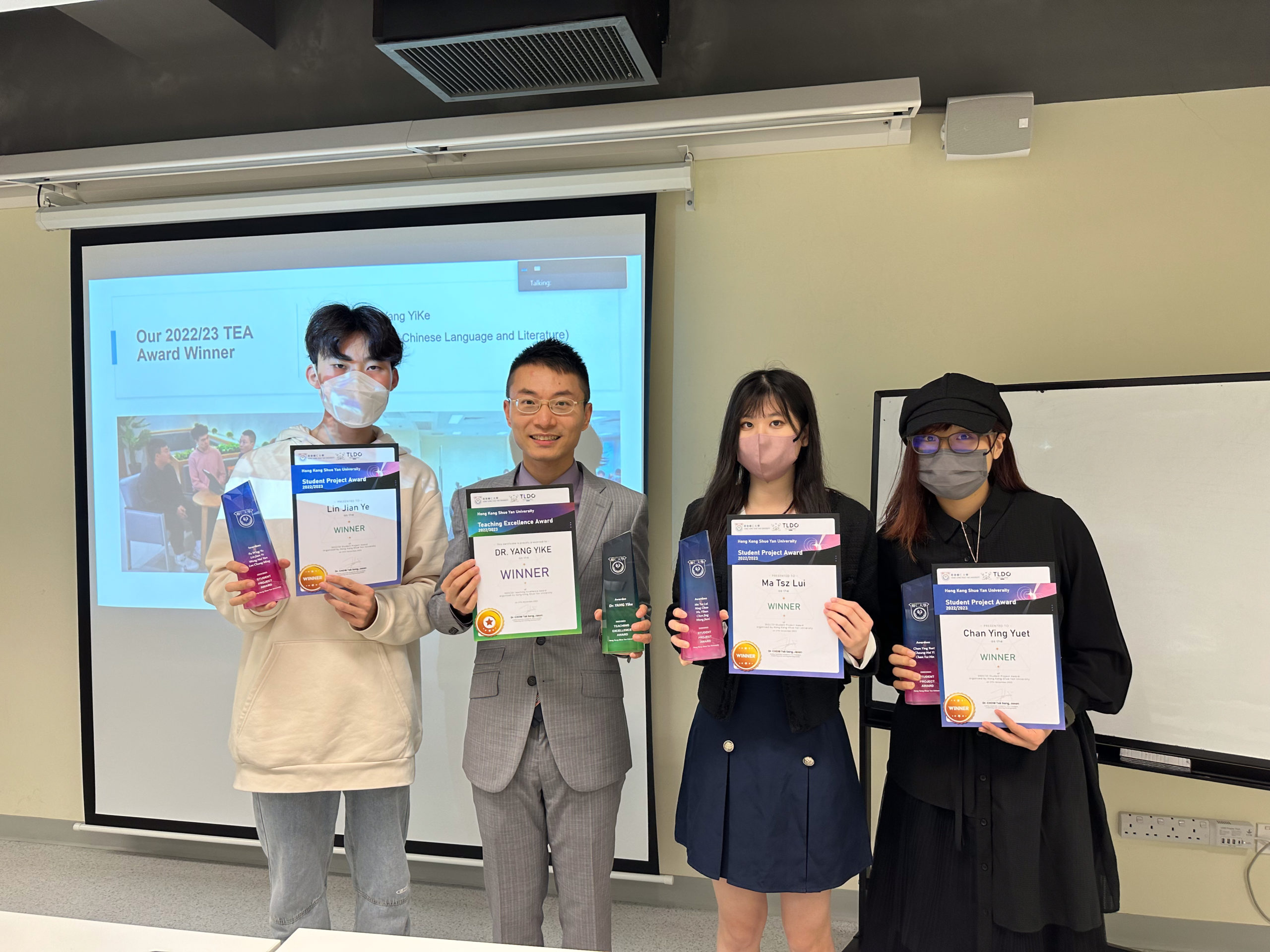Hong Kong Shue Yan University proudly announces the winners of the first Teaching Excellence Award(TEA) and Student Project Award(SPA). These Awards, organized by the Advancement for Teaching and Learning Development Committee (ATLC), aim at creating an atmosphere of teaching and learning excellence in the University by recognizing outstanding and innovative teaching and learning. These Awards also aim to promote peer-learning among teachers and students.
The Teaching Excellence Award acknowledges individual teaching staff who have demonstrated innovative and effective pedagogical. The TEA is open to full-time teaching staff who have been with HKSYU for at least two semesters. The selection criteria focus on innovative pedagogy, effective application of educational technology and interdisciplinary perspectives.
The Student Project Award sets the stage for undergraduates across diverse disciplines to showcase their innovation and creativity in their academic pursuits. The SPA aims to encourage students to realize their potential through creative projects, and cultivate a collaborative learning culture with active learning and project-based learning. The SPA is open to fulltime undergraduates. It evaluates student projects based on academic quality, originality, impact, and interdisciplinary perspectives. It also requires a written recommendation from course lecturers.
The University wishes to extend heartfelt congratulations to the winners of 2022/23 Teaching Excellence Award and Student Project Award.
2022/23 Teaching Excellence Award Winner
Dr. Yang Yike (Department of Chinese Language and Literature)
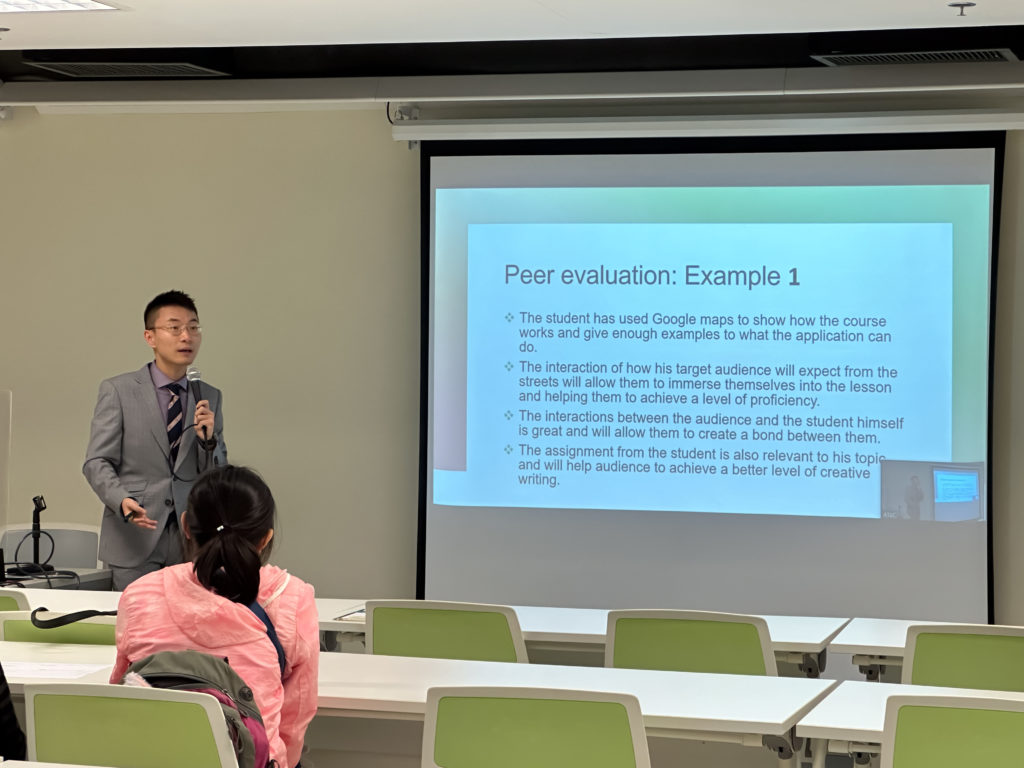
Dr. Yang’s award-winning course “Digital Technologiesin Teaching”(IDP 401) was developed as an elective forthe education concentrations in Chinese, English, and history. The course aims to introduce students to new technologies used in education and provide them with the opportunity to explore the integration of these technologies into their teaching practices. It covers various areas such as learning management systems,extended reality (XR), geographic information systems (GIS), and 3D printing.
The course places a strong emphasis on training students to integrate digital technology into pedagogy effectively. Dr. Yang employs innovative teaching methods that encourage hands-on learning experiences for the students. One notable aspect of the course is that students are given the opportunity to create their own Open Educational Resources (OERs), allowing them to apply the knowledge and skills they have acquired throughout the course.
2022/23 Student Project Award Winners
“The Real Surrealism Masterpiece: Salvador Dalí versus the Artificial Intelligence”
Contributors: Chan Ying Yuet, Cheung Hoi Yi, Chan Tsz Hin (Department of Chinese Language and Literature and Department of Sociology)
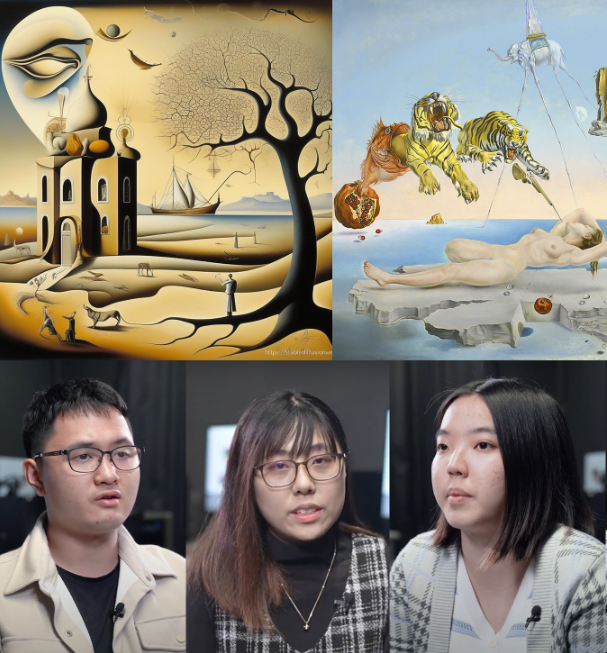
This project designed an exhibition that includes both Salvador Dalí’s original artworks and artworks generated by artificial intelligence. Dali’s works and Al-generated works were mixed and randomly placed on site. The exhibition aims to increase public understanding of surrealist art, raise public awareness of surrealist art, and provoke critical reflection on the impact of AI on artistic practice.
2022/23 Student Project Award Winners
“Zheng He’s Voyages to the West and the MingDynasty Defense Construction”
Contributors: Fu Wing Yu, Lin Jian Ye, Wong Hoi Yan, Lee Chung Ming (Department of History)
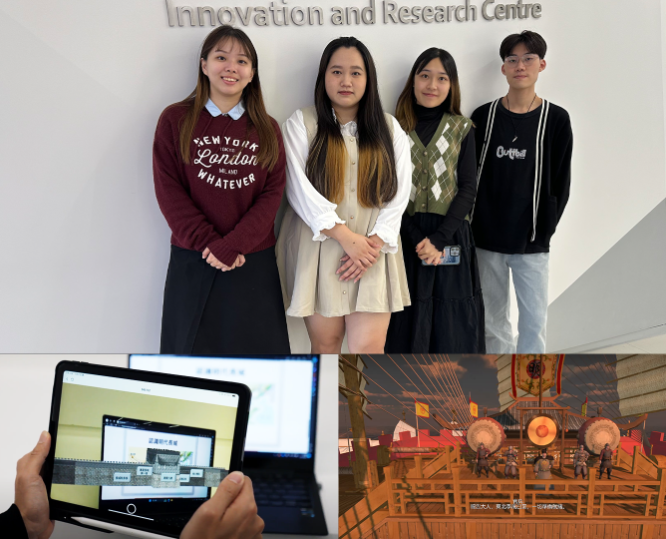
This project aims to enhance secondary school students’ interest in learning Chinese History through the use of open educational resources (OER) in the form of a website. This project stands out with its integration of immersive technologies such as AR and VR. With these technologies, users can learn about the Great Wall of the Ming Dynasty, one of the most important defence constructions in the Ming Dynasty, explore Zheng He’s voyages, and discover the routes Zheng He travelled.
2022/23 Student Project Award Winners
“Adoption and Use of Digital Technologies in Museums: A Case Study of Hong Kong Palace Museum”
Contributors: Ma Tsz Lui, Ning Chao, Wu Yihan, Chen Jing , Wang Jiani (Department of History and Department of Accounting)
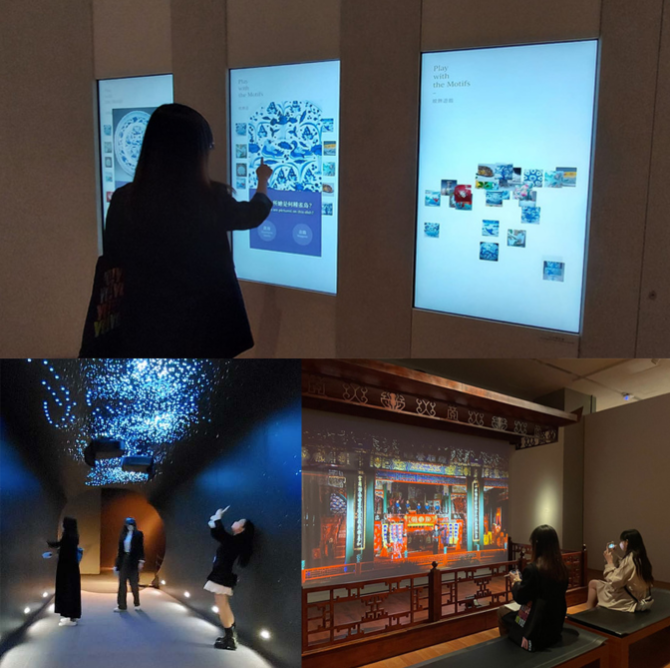
The project reflected on the adoption and use of digital technologies in museums through a case study of the Hong Kong Palace Museum. Quantitative analysis was used to assess the attractiveness of all digital devices in eight galleries. The study helps to assess the achievements and shortcomings of different digital technologies in the Hong Kong Palace Museum.
Source: Spring 2024 Issue
